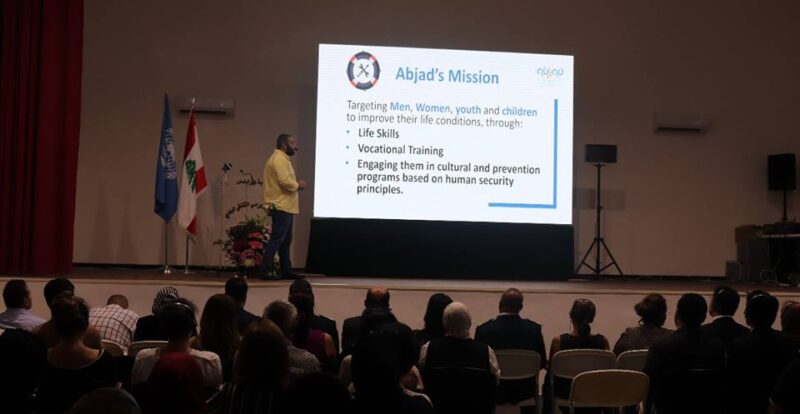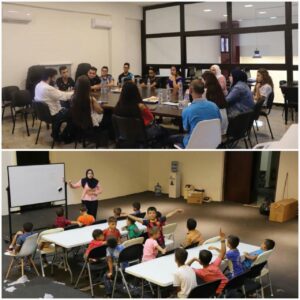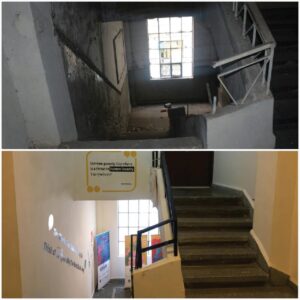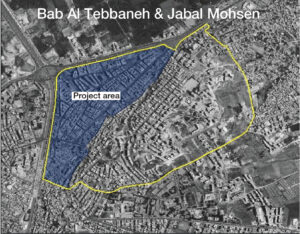
Abjad Center: To Improve Human Security and To Revive Isolated Sites
ABJAD, the renovated center previously known as “Cinema Al Andalos”, is a welcoming, attractive, and functional space that thousands of community members, residents, and visitors, from vulnerable neighborhoods, use each year and benefits from its services. It aims to enhance resilience and living conditions for men, women, youth, and children, in Bab El Tabbaneh and Jabal Mohsen neighborhoods.
This social-cultural center is a part of Shankal Project funded by United Nations Human Security and Japan Government; implemented by UN-Habitat, UN Women & UNICEF; in partnership with the Ministry of Social Affairs, Tripoli Municipality and UTOPIA for Social Justice.
As a safe space and the first of its kind community center, ABJAD is utilized for the protection, income generation and livelihood opportunities of vulnerable women and youth from both refugee and host communities in the city of Tripoli specifically Jabal Mohsen and Tebbaneh. It targets men, women, youth, and children to improve their life conditions, through life skills, Vocational Training, engaging them in cultural and prevention programs based on human security principles.

The Center’s ability to accommodate a large number of individuals and the presence of a cinema/ theater, a public library, and a computer lab make it the ideal place for carrying out any cultural, artistic or social activities. Therefore, any organization can benefit from its open space.
Today, ABJAD is hosting tens of activities implemented by other partners, Working under and beyond “Shankal Project”. Including local and international NGOs, Networks, grassroots, and individuals: Abaad, Fayhaa, Basme W Zaitune, Safadi, Rahme medical center, Shababik, Caravane, Right to Play, Oxfam, LEO Club, etc.

CINEMA RENOVATION
During the 60’s, Cinema Al Andalos; located in Syria Street – Bab El Tabbaneh; lived its golden age. At that period, the city had 34 Cinemas, including the biggest cinema in Lebanon with a capacity of 900 seats, and going to cinema’s was a habit for all Tripoli’s
citizens. Unfortunately, during the civil war, most of the cinemas were destroyed and used as a base for fighters from both sides. Nowadays, Tripoli is left with only one cinema and watching movies become a privilege to a few.

CONFLICT ZONE
ABJAD is located in Syria street in Tabbeneh, this is literally the demarcation line between two conflict zone, Jabal Mohsen and Tebbene. A very sensitive point, where the social situation could be best described as being either stagnant or on the verge of exploding. It is contained, many describe it as a ghost town. Bab El Tabbaneh is one of the poorest areas in Lebanon. In a recent report issued by the UN, Tripoli and Bab Al Tabbaneh particularly scored the highest rates in poverty, unemployment, and illiteracy, 51% of Bab Al Tabbaneh residents live below the poverty line.
The areas have suffered from the negligence of the state over the last three decades causing a lack of civic engagement and an increasing tendency for youth to take part in the ongoing violent clashes.
The targeted areas are characterized by very high poverty rates. In addition to high population growth, the increased influx of rural migrants and refugees has led to the shortfall inadequate housing and provision of basic urban services. Particularly in regard to basic urban services, claim-holders have experienced difficulties in asserting their rights and duty-bearers in fulfilling their obligations regarding such as access to water and sanitation, education and health facilities.
